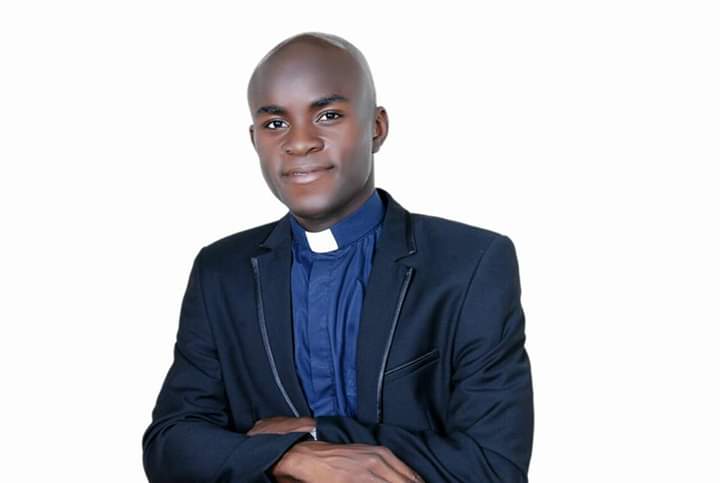1st Reading: Acts 3:13-15.17-19ab / Responsorial Psalm: Psalm 4:2.3.7.9 (R. 7b) 2nd Reading: I John 2:1-5a / Gospel Acclamation: Lk. 24:32 / Gospel: Luke 24:35-48
Theme: The Church Exists To Evangelise
In today’s liturgy, our attention is drawn to our mission as Christians. In the first reading, we see the core of the kerygmatic preaching of the Apostles. By this, the main facts about the Paschal mystery are stated. That, Jesus Christ suffered as the prophets foretold, was crucified under Pontius Pilate, died and was buried, resurrected, ascended into heaven and is seated at the right hand of the Father and so on, is the crux of the Christian Kerygma. In the first reading, St. Peter states the kerygma and addresses his Jewish audience: “And now, brethren, I know that you acted in ignorance, as did also your rulers” (Acts 3:17). This is followed by an exhortation on repentance as a conditio sine qua non (necessary condition) for the forgiveness of sin: “Repent therefore, and turn again, that your sins may be blotted out” (cf. Acts 3:19). The problem may not be how deep we have fallen, but how quick we can get out of it and opt for change!
At the first instance, ignorance may be excused but not in the second! In the legal profession, we often hear: Ignorance of the law is no excuse. That is what Peter says to the Jewish authorities, who, although consented to the crucifixion of Jesus Christ, have been given the opportunity to repent. Yet, their refusal to acknowledge Christ as Son of God and the fact of his resurrection, smacks of obstinacy and utter disbelief. According to William Barclay, the knowledge of God is the greatest privilege but also the greatest responsibility. In this regard, St. Peter tells us in the first reading that we have the obligation to repent for we can no longer claim ignorance of Christ.
It is also said that ‘If one thinks that ignorance is expensive, then they should try education.’ The idea of education as a remedy for ignorance makes the early Christians resort to witnessing. Witnessing or evangelising about what? The resurrection of Jesus Christ, which he himself makes an allusion to when he queries in today’s Gospel: “Why are you troubled, and why do questionings rise in your hearts? See my hands and my feet, that it is I myself; handle me, and see; for a spirit has not flesh and bones as you see that I have” (Lk. 24:38-39). It is this fact that Jesus Christ passed from death to life, that death has not the final say, only Jesus has! This is what we are to share with everybody. Indeed, it was not, and has not and is not and will never be an easy thing to evangelise. Quite recently, the only Christian among the Government Girls’ Secondary students, Leah Sharibu, abducted by Boko Haram terrorists in Dapchi, Yobe State, Nigeria, was not among those released because she refused to denounce Christ and to convert to Islam. Her action constitutes evangelisation and we too must be ready to do same. So, the Church exists to evangelise, and that is our mission! That is exactly what we are called to do especially in this Easter season in which Christians are expected to share the resurrection of Jesus Christ with every Tom, Dick, and Harry. We are to preach that sin and evil bring death and enslavement, but sincere repentance elicits forgiveness as the Gospel reiterates (cf. Lk. 24:47).
In his Post-Apostolic Exhortation, Evangelii Nuntiandi (Evangelisation in the Modern World, no. 73), Pope Paul VI had clearly stated that the Holy Spirit is the principal agent of evangelisation. Hence, to be effective evangelisers or witnesses, we need a personal intimate relationship with the Holy Spirit, who can really turn the hearts of people to faith in Christ Jesus. In any case, it is worth noting that preaching is the springboard of faith (cf. Rom. 10:14-17). That is why before ascending into heaven, Jesus gave us this command: “Go, therefore, and make disciples from all nations. Baptise them in the name of the Father and of the Son and of the Holy Spirit, and teach them to fulfil all that I have commanded you” (Mt. 28:19-20), and we need to obey.
How does forgiveness come about? Through repentance, conversion, a newness of life brought about by a sincere change of mind and heart. Change of mind is very easy, but the change of life is difficult. Nonetheless, when we repent genuinely, we are cleansed of sin and strengthened even in our weaknesses through the salvific action of Christ. Consequently, in today’s second reading, we learn that Christ is our advocate and universal expiation for sin. Therefore, St. John says: “I am writing this to you so that you may not sin; but if any one does sin, we have an advocate with the Father, Jesus Christ the righteous; and he is the expiation for our sins, and not for ours only but also for the sins of the whole world” (I Jn. 2:1-2). Christ is the Advocate (Greek: Paracletos) and Expiation/Propitiation (Greek: Hilasmos). As Advocate, he stands by our side like a lawyer to defend us not in sin but to help us get out of it. As expiation, he is our paschal/atoning sacrifice who died and is at God’s right-hand to intercede for us (cf. I Jn. 2:1-2, Rom. 8:34, Heb. 7:25, 9:24). With him, we can rise again from where we have fallen.
We should not take sin lightly since it costs the precious Blood of Jesus! As Christians who have come to know Christ, the inevitable accompaniment is obedience. Knowledge and obedience are two parts of the same coin, and our knowledge of Christ must issue out in obedience. Therefore, John says “He who says ‘I know him’ but disobeys his commandments is a liar, and the truth is not in him; but whoever keeps his word, in him truly love for God is perfected” (I Jn. 2:4- 5). In Christ, in our quest to evangelise others, we must note carefully that, obedience to God’s commandment is of essential priority. Not just knowledge, but also intimate experience of Christ. It is not just knowing about Christ, but knowing him personally. This means that intellectual effort and emotional experience must combine to produce moral action; and the only way by which we can show that we know God is by obedience to Christ and by imitating him.
Finally, evangelisation begins with us. It starts in the Christian home where father, mother and children live in the love of Christ. With a smile to the unloved, kind gesture to the stranger, succour to the needy, instruction to the ignorant, pardon to sinners and the Gospel to the world, we can bring Christ to others. Let us not sit on the fence nor be indifferent. Speak to a soul in the ordinariness of life and work, and they will be saved for Christ. In union with the Psalmist, let us cry to God: “Lift up the light of your face on us, O Lord” (Ps. 4:7b). We pray that Christ may strengthen our resolve, deepen our faith, reinforce our hope and activate our charity so that we can testify by word and deed that Christ is risen indeed. God is willing to help us if we are willing to do his bidding. Happy Sunday. Remember: #The-Church-Exists-To-Evangelise#
By Rev. Fr. Lucas Binnah Junior, C.S.Sp.








